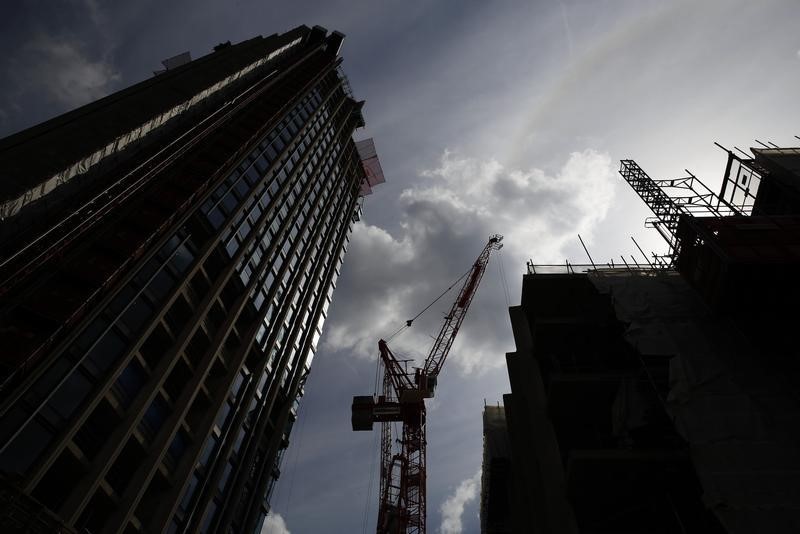LONDON (Reuters) - British construction bounced back in March, offering some signs that the sector might be ending a period of weakness that started late last year, as private-sector house-building rose for the first time in six months.
Construction output rose by 3.9 percent in March, above economists' expectations, after dropping by 0.3 percent in February, a smaller decrease than earlier estimated, the Office for National Statistics said.
Looking at the first quarter as a whole -- which smooths out what is often volatile monthly data -- output was down by 1.1 percent, less of a decline than the estimate of a 1.6 percent drop used in last month's preliminary estimate of first-quarter gross domestic product.
Construction makes up about 6 percent of Britain's economy. The ONS said that combined with an upward revision to first-quarter industrial output data released on Tuesday, Friday's new data could push up April's 0.3 percent estimate of GDP growth by just under 0.06 percentage points.
However, revisions to data on Britain's far larger services sector data, which are yet to be published, are likely to have a bigger impact.
Britain's construction industry grew strongly for most of 2014 but started to cool towards the end of the year.
The ONS said March's rise was driven by a 20 percent increase in non-housing repair and maintenance work, which may have been partly due to seasonal effects which are not fully stripped out of the data.
On Wednesday, the Bank of England cited weak outlook for housing construction as one reason why it had downgraded Britain's overall growth prospects, and forecast that housing investment would expand at only half the rate it had previously pencilled in.
Friday's data showed housebuilding in the first quarter fell by 3.4 percent, the biggest drop in nearly three years. But March showed some tentative signs of a recovery, with construction of new homes up by 1.3 percent. Building of private homes rose for the first time since September.
Recent data have shown house prices are starting to pick up again after a slowdown in the second half of last year caused by tighter mortgage lending rules, while supply shortages persist.
On Thursday, the Royal Institution of Chartered Surveyors called the lack of affordable housing a "national emergency", and said government measures to help home-buyers were not leading to enough new homes being built to meet demand.
